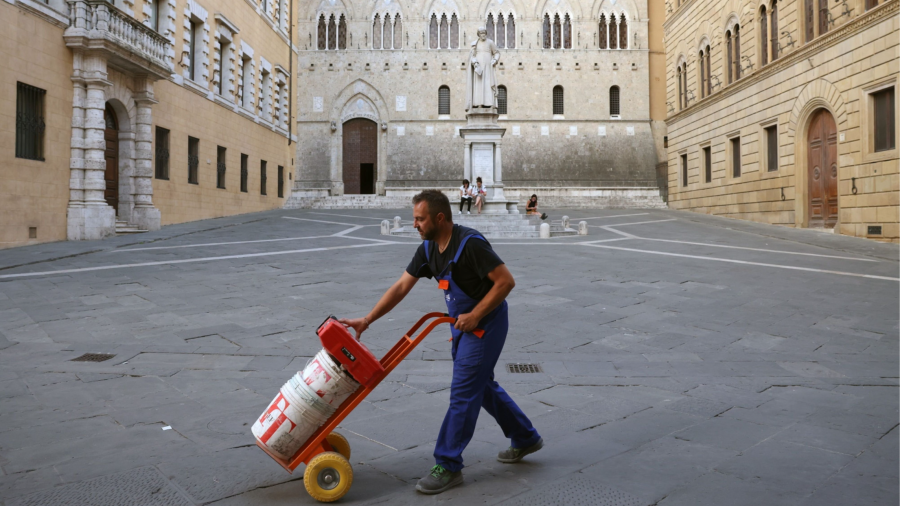
Brussels officials are concerned that a €2.5bn fundraising at the world’s oldest bank Monte dei Paschi di Siena could constitute illegal state aid.
The Italian treasury is buying 64 per cent of the shares in the capital raise, which has been shunned by most private investors and launched last week only after underwriters were offered an unusually lucrative deal.
Under EU rules, the state can only take part if all investors — public and private — are subject to the same conditions.
“The question is whether any of the parties backing the rights issue were offered a sweetener as opposed to Italian taxpayers that aren’t receiving any risk reduction offer or other incentive,” said one official on condition of anonymity.
MPS, which dates back to the 15th century, was nationalised in 2017 in a €5.4bn government bailout after a series of scandals and severe losses. The current cash call is the company’s seventh in 14 years.
Eight underwriters, including Citigroup, Bank of America, Credit Suisse, Mediobanca and alternative investment fund Algebris, are sharing a €125mn payment for underwriting a fraction of the overall capital increase.
International investors claim such a fee to be exceptional and “off-market”. The Italian financial regulator, Consob, required MPS to issue a statement highlighting the exceptional fee amount as it would affect the bank’s capital buffer targets.
To hedge their risk further, the banks have signed sub-underwriting agreements worth at least €410mn with third-party investors including French insurer Axa and asset manager Anima, both of which have commercial partnerships with MPS, and a group that also hold MPS Tier 2 bonds including Pimco, Melqart and Bluebay.
The sub-underwriters have committed to buy a certain amount of MPS shares if current shareholders do not exercise their rights to buy the stock during the two-week rights issue.
They will be paid a “commission fee” by the arranger banks, according to the prospectus.
One investor said: “The taxpayers are the only ones who face the loss risk in full.”
MPS told the Financial Times: “The fees must be calculated on the full amount underwritten by the pool of coordinators and if the capital increase is successful the figure will also include the co-ordination and management activities as well as the risk component.”
MPS added that additional investors are due to back the rights issue this week.
Bankers close to the fee negotiations said the underwriters were unwilling to guarantee the full private investors’ share, or 36 per cent, of the capital raise unless their risk was “cancelled out or significantly diminished by the remuneration”. They said the fees were proportionate to the risk.
Lucia Tajoli, an international markets and European institutions professor at Politecnico di Milano university, said the arrangement appeared to be “perplexing” and “in contrast with EU rules”.
The capital raise comes after Italy missed its deadline last year to privatise MPS. Earlier this year MPS said it faced a capital shortfall of €500mn in 2023. The bank’s share price has dropped to below €2, a 90 per cent fall in the past 12 months.
The EU is actively engaging with the Italian government on the capital raise, said a person with direct knowledge of the matter, although this may not lead to a formal probe. The European Commission said it had “no specific comment” and that it was generally up to member states to monitor and inform Brussels if state aid was involved.
One Italian official who spoke on condition of anonymity said MPS had been advised by legal experts the structure of the share issue could raise state aid concerns.
Italy’s new government entered into office last weekend. The treasury in Rome could not be reached for comment.